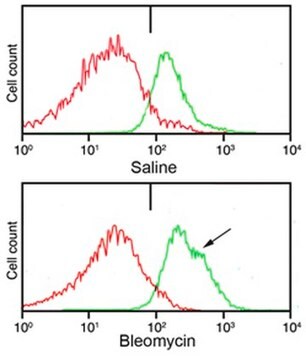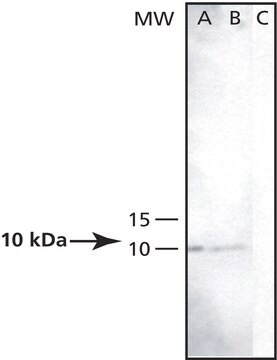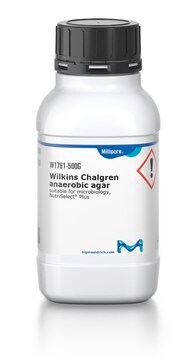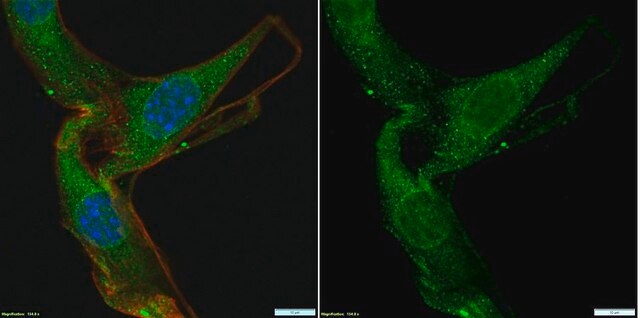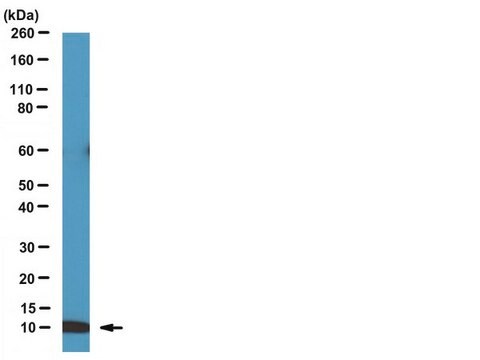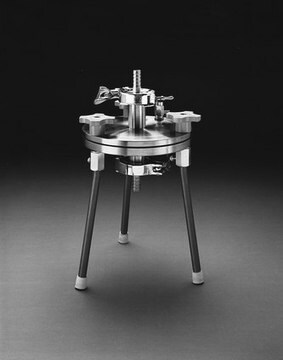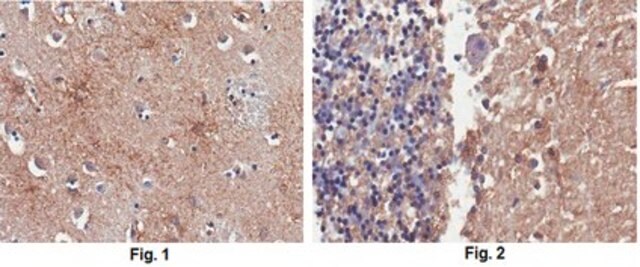07-1386
Anti-Connective Tissue Growth Factor Antibody
from goat
Synonyme(s) :
Hypertrophic chondrocyte-specific protein 24, connective tissue growth factor, insulin-like growth factor-binding protein 8
About This Item
Produits recommandés
Source biologique
goat
Niveau de qualité
Forme d'anticorps
purified antibody
Type de produit anticorps
primary antibodies
Clone
polyclonal
Espèces réactives
human
Technique(s)
western blot: suitable
Numéro d'accès NCBI
Numéro d'accès UniProt
Conditions d'expédition
wet ice
Modification post-traductionnelle de la cible
unmodified
Informations sur le gène
human ... CTGF(1490)
Description générale
Spécificité
Immunogène
Application
Signaling
Growth Factors & Receptors
Qualité
Western Blot Analysis: 5 µg/mL of this antibody detected Connective tissue growth factor on 10 µg of untreated and TGFb1 treated NRK cell lysates.
Description de la cible
Forme physique
Stockage et stabilité
Remarque sur l'analyse
Untreated and TGFb1 treated NRK cell lysates
Autres remarques
Clause de non-responsabilité
Vous ne trouvez pas le bon produit ?
Essayez notre Outil de sélection de produits.
En option
Code de la classe de stockage
12 - Non Combustible Liquids
Classe de danger pour l'eau (WGK)
nwg
Point d'éclair (°F)
Not applicable
Point d'éclair (°C)
Not applicable
Certificats d'analyse (COA)
Recherchez un Certificats d'analyse (COA) en saisissant le numéro de lot du produit. Les numéros de lot figurent sur l'étiquette du produit après les mots "Lot" ou "Batch".
Déjà en possession de ce produit ?
Retrouvez la documentation relative aux produits que vous avez récemment achetés dans la Bibliothèque de documents.
Notre équipe de scientifiques dispose d'une expérience dans tous les secteurs de la recherche, notamment en sciences de la vie, science des matériaux, synthèse chimique, chromatographie, analyse et dans de nombreux autres domaines..
Contacter notre Service technique